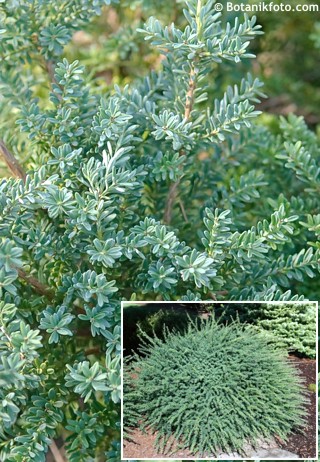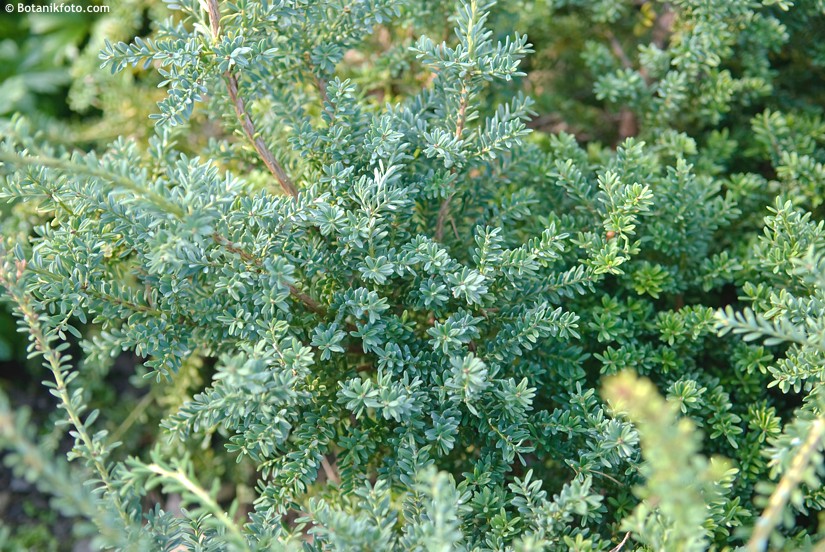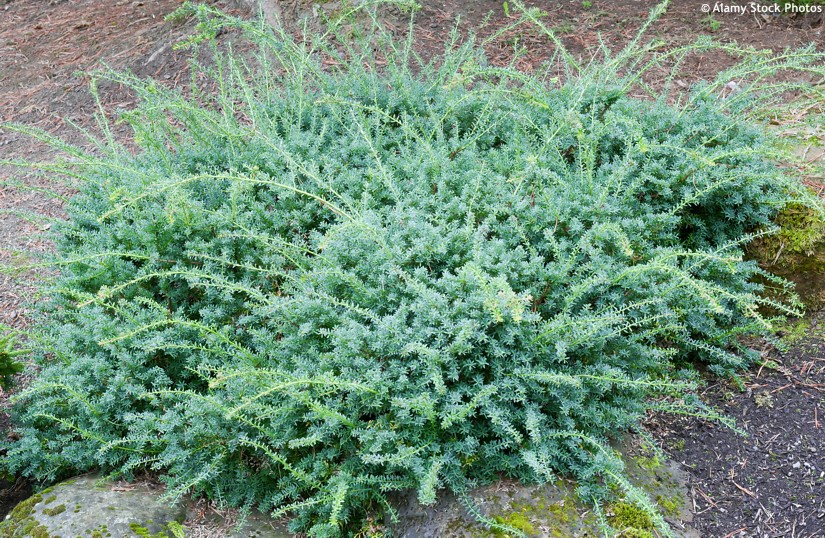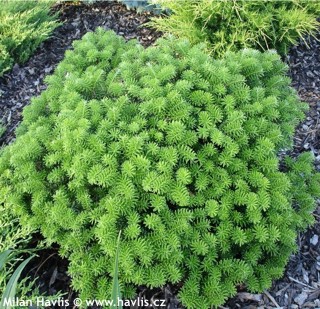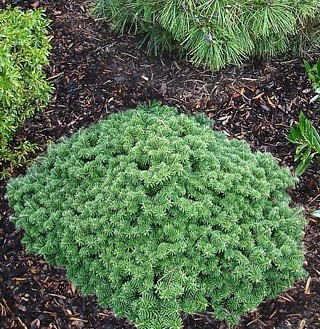Podocarpus lawrencei (syn. p.alpinus) 'BLUE GEM' Tasmanian podocarp, mountain plum-pine
size/type
small shrub,small shrub
usual height
0,3-0,5m
usual width
0,5-1m
leaves
evergreen conifer
colour of leaves
location
full sun
USDA zone (lowest)
7 (down to -23°C)
winter protection
for zone 5+6

for zone 7

categorized
Podocarpus
Tasmanian podocarp, also called mountain plum-pine is one of 107 species in podocarpus genus which was long believed to be too tender for continental or colder climate north of USDA zone 8. As it happens with all beautiful plants that have the same hardiness problem, there were enthusiasts reluctant to accept that and kept on searching for a species suitable for colder countries. One of them was Graham Hutchinson of County Park Nursery from Essex in England who spent much of his time selecting and hybridizing them in order to receive a hardy and beautiful variety. He had a great success especially with one species originally from Tasmania and New South Wales in Australia: podocarpus lawrencei (originally p.alpinus), and furthermore crossing it with podocarpus nivalis. There are records of several specimens in the UK, 50 or more years old, unharmed by the most severe winters that brought -30°C, which gives more than a hope that it will do well in Central Europe, too.Description of the plant:
Blue Gem is a popular selection of podocarp with attractive blue-green needles. They are evergreen and only 1-2 cm long. The plant is spreading and mound-forming. In colder Europe it will not exceed 50 cm tall and one meter wide, and such size can be expected in 40-50 years. In spring or in midsummer it can be pruned or trimmed in order to achieve compact and denser habit. Female plants, if pollinated by pollen from male plants, produce small, rounded, red berries which resemble yew fruit, and in spite of overall similarity to yew podocarp is NOT toxic in any of its parts.Podocarp will grow in many soil types of any pH, but best results can be expected in humus-rich, deep soil. Never let it dry out - it is heat tolerant but requires constant moisture, not wet ground. We grow it in partially clay soil and it does well, just growing slower. Plant it in full sun or partial sun, it dislikes absence of direct sunlight. It is very hardy and rated absolutely trouble free to -25°C (USDA zone 6), yet some sources recommend a simple form of winter protection in colder zones. However, as the plant protects itself by transferring the chlorophyll to the roots, leaving the needles reddish brown, it does not sound like a must unless colder temperature is forecast.
Last update 19-03-2018

































